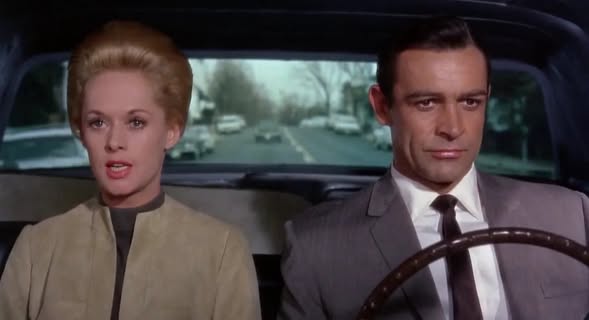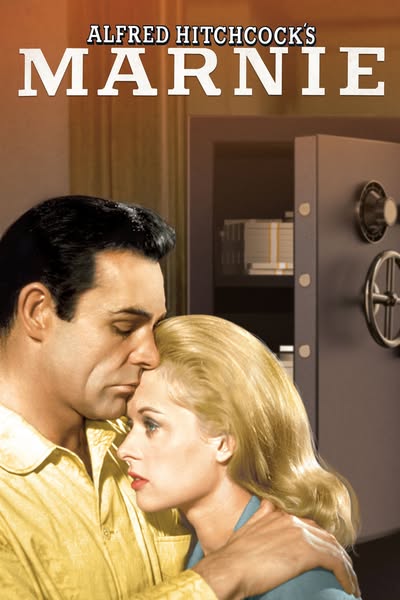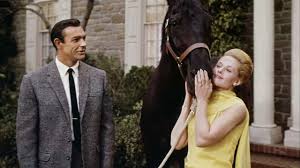Marnie (1964)

“Marnie,” directed by Alfred Hitchcock and released in 1964, is a psychological thriller that delves into themes of identity, trauma, and obsession. Starring Tippi Hedren as the enigmatic Marnie Edgar and Sean Connery as Mark Rutland, the film explores the complex relationship between a troubled woman and the man who becomes fascinated by her.
The story follows Marnie, a thief who assumes multiple identities to commit various crimes. After stealing money from a company, she is caught by Mark, who becomes intrigued by her mysterious persona. Instead of turning her in, he offers her a chance at redemption, believing he can help her confront her past traumas.

Hitchcock’s direction is characterized by his meticulous attention to detail and psychological depth. The film employs striking visuals and symbolic imagery, particularly in its exploration of Marnie’s mental state. The use of color, especially the dominant reds and whites, serves to enhance the emotional tone of the narrative.

Tippi Hedren delivers a powerful performance, capturing Marnie’s complexities and vulnerabilities. Her character’s struggles with repression and anxiety are portrayed with nuance, making her a compelling figure in Hitchcock’s filmography. Sean Connery, as Mark, provides a strong counterbalance to Marnie’s character, embodying both charm and a darker obsession.
The film’s screenplay, written by Jay Presson Allen, adapts Winston Graham’s novel, focusing on the psychological ramifications of Marnie’s experiences. The narrative unfolds slowly, allowing viewers to piece together the fragments of Marnie’s troubled past, including her childhood trauma and its impact on her adult life.

“Marnie” is notable for its exploration of psychological themes, particularly the impact of trauma on identity and relationships. The film delves into complex issues of control, desire, and the struggle for self-acceptance, making it a rich subject for analysis.
In conclusion, “Marnie” is a fascinating and intricately crafted film that showcases Hitchcock’s mastery of suspense and psychological drama. With strong performances and a thought-provoking narrative, it remains a significant entry in the director’s oeuvre, continuing to engage and intrigue audiences with its exploration of the human psyche.











